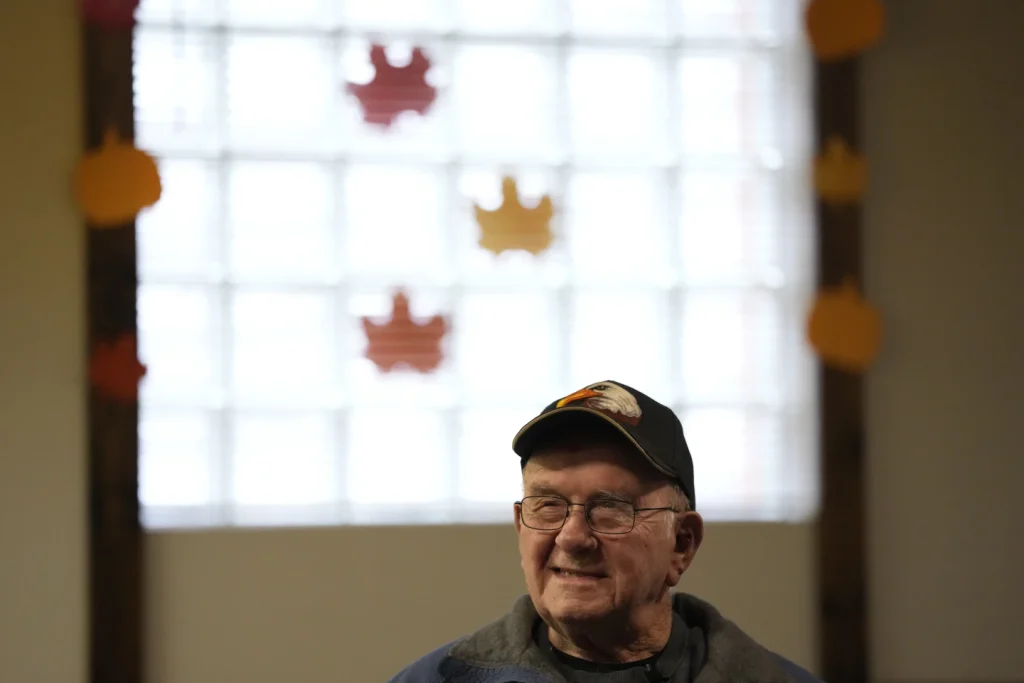The valor and sacrifice of war veterans often go unrecognized, their stories lost in the annals of history. However, the recent case of Earl Meyer, a Korean War veteran from Minnesota, sheds light on the arduous journey some service members face in receiving the honors they rightfully deserve.
At the age of 96, Meyer has finally been granted the Purple Heart, a prestigious medal awarded to those wounded or killed in combat, a staggering 73 years after he was wounded in action.
The U.S. Army’s decision to award Meyer the Purple Heart came as a result of a relentless campaign led by his daughters and attorney, supported by U.S. Sen.
Amy Klobuchar and the intervention of the Army’s highest-ranking noncommissioned officer. Despite years of rejection due to bureaucratic hurdles and missing paperwork, the perseverance of Meyer’s advocates eventually paid off.
U.S. District Judge John Tunheim’s directive for a review board to revisit the case proved instrumental in overturning the previous denials.
Meyer’s experience epitomizes the challenges faced by many wounded veterans in proving their eligibility for medals earned in the chaos of war.
The fog of war, coupled with the passage of time and the loss of crucial records, often creates insurmountable obstacles for veterans seeking recognition for their sacrifices.
In Meyer’s case, the scarcity of surviving witnesses from his unit and the chaotic circumstances of the mortar attack that wounded him made it particularly difficult to substantiate his claim.
Reflecting on his long-overdue recognition, Meyer expressed humility and gratitude, acknowledging the unexpected turn of events.
His initial disbelief at the Army’s decision underscores the enduring impact of his wartime experiences and the modesty with which he carried himself throughout his service.
Meyer’s focus during the conflict was not on accolades or medals but on survival, a testament to the selflessness and courage exhibited by countless veterans in the face of adversity.
Senator Klobuchar’s poignant words encapsulate the sentiment shared by many towards Meyer’s belated acknowledgment.
She aptly recognizes Meyer’s unwavering dedication to defending the freedoms cherished by all Americans and emphasizes the debt of gratitude owed to individuals like him.
The collaborative effort between Meyer’s family, advocates, and the Army exemplifies the power of unity in ensuring that veterans receive the recognition they deserve, no matter how long overdue.
In conclusion, Earl Meyer’s journey to receiving his Purple Heart serves as a poignant reminder of the sacrifices made by veterans in service to their country.
His story highlights the importance of perseverance, advocacy, and unwavering support in securing recognition for those who have selflessly served in times of conflict.
As we honor Earl Meyer and veterans like him, let us reaffirm our commitment to upholding the valor and dignity of those who have borne the burdens of war with courage and fortitude.
Meyer completed his tour guarding prisoners of war and was honorably discharged in 1952. Throughout his military career, he received several decorations, including the prestigious Combat Infantryman Badge, which is awarded to those who actively engage in ground combat under enemy fire.
Additionally, he was honored with the Congressional Gold Medal for his service in the Merchant Marine during World War II.
Despite his impressive accolades, Meyer remained humble and continued to live an active life, often meeting with fellow veterans for coffee at his local American Legion post.
For many years, Meyer kept his wartime experiences to himself, only revealing bits and pieces to his three daughters. It wasn’t until recently that he decided to open up about his past.
Encouraged by his daughters, he embarked on a journey to obtain a Purple Heart, a medal awarded to those wounded or killed while serving in the U.S. military.
After facing initial denials from the Army due to insufficient documentation, Meyer sought the assistance of Senator Amy Klobuchar’s office. With their help, he was able to gather additional evidence to support his case.
Last week, an Army review board finally acknowledged Meyer’s combat injury, citing medical records from the Department of Veterans Affairs and a supportive memo from Sgt. Maj. of the Army Michael Weimer.
The news of Meyer’s impending Purple Heart presentation ceremony has brought immense joy to his family. Sandy Baker, one of Meyer’s daughters, expressed her excitement and gratitude for the long-awaited recognition.

Attorney Alan Anderson, who assisted Meyer in his quest for the medal, emphasized the importance of honoring veterans like Meyer for their sacrifices and contributions to the country.
“It’s not just about saying thank you, it’s about remembering,” Anderson remarked. “Remembering all they did and their sacrifices, and the guys that didn’t make it back.”
Meyer’s journey to receive his Purple Heart serves as a powerful reminder of the bravery and resilience displayed by veterans, whose stories deserve to be shared and celebrated.
In conclusion, Meyer’s story is a testament to the courage and selflessness of those who have served in the military. His long overdue recognition with the Purple Heart serves as a reminder of the sacrifices made by veterans and the importance of honoring their contributions.
As we reflect on Meyer’s journey, let us remember and appreciate the countless individuals who have dedicated their lives to serving their country.
